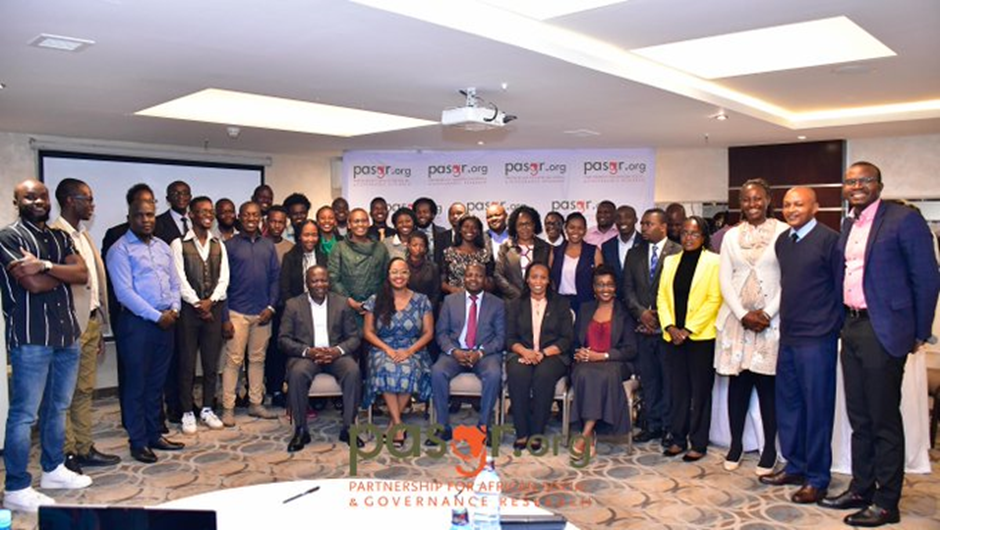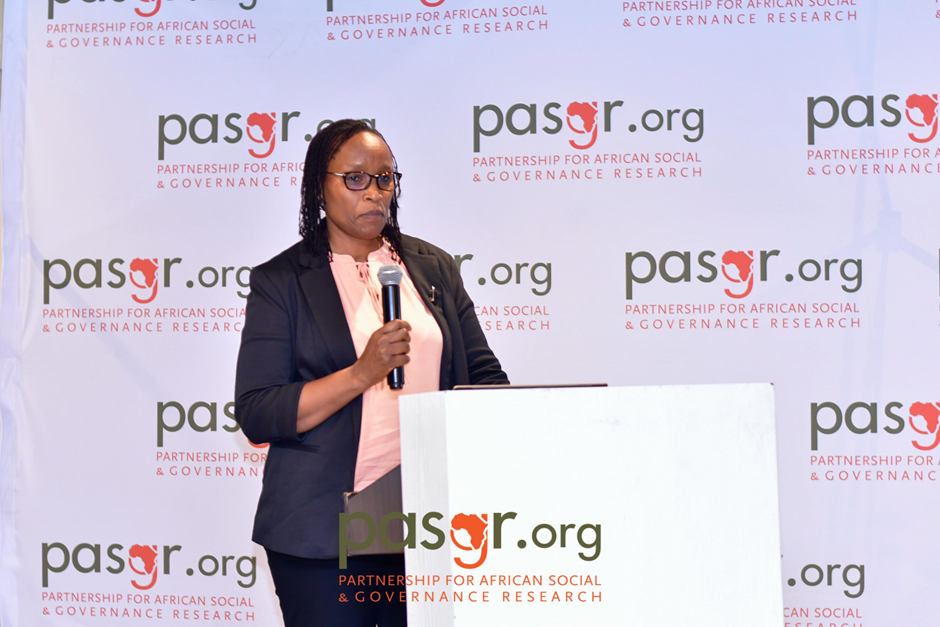Contact Info
- 6th Floor, I & M Building 2nd Ngong Avenue, Upper Hill
- +254 (0)20 2985000; +254 (0)729 111031 / +254 (0)731 000065
- info@pasgr.org
- Office Hrs: Today 9.00am to 6.00pm
Kenya is a country abundant with energy and ambition, and its youth demographic is a significant force, making up around 28% of the population, which translates to approximately 13 million individuals, as per the KNBS 2019 census. However, this promising group faces challenges such as unemployment and informal work, which cast doubt on their prospects. As Kenya endeavours to tackle these issues, it becomes clear that the priority is to create opportunities that enable young people to access meaningful and satisfying livelihoods, thus paving the way for prosperity and well-being.
Contrary to common stereotypes that often portray young people as passive victims of circumstances or reckless risk-takers, emerging evidence underscores their resilience, innovation, and unwavering pursuit of better futures. In Kenya, youth are agents of change, actively involved in diverse income-generating activities, driving innovation through entrepreneurship, and building networks to bring about personal and societal transformation. They embody a resilient spirit and capitalize on opportunities in sectors such as the gig economy and creative industries to shape their own destinies.
Recognizing the pivotal role of youth aspirations and resilience, we collaborated with the Mastercard Foundation on a multi-country research initiative called African Youth Aspiration and Resilience (AYAR) project, covering seven African nations, including Kenya. This comprehensive study employed youth-led participatory research methodologies to delve into various aspects of youth experiences, including aspirations, perspectives on meaningful work, encountered barriers, and resilience strategies.
To amplify the impact of this research and facilitate dialogue among stakeholders, we organized a dissemination workshop in Nairobi, Kenya on March 26, 2024. The workshop provided a platform to discuss country-specific insights and reflect on the findings from the 3-year study, as well as collaboratively chart pathways for youth empowerment. The study was conducted in 17 counties across Kenya.
This workshop, attended by Kenyan youth, youth champions, policy experts, and government officials among other participants, analyzed these findings to inform policy and program development. The primary objective was to foster ongoing dialogue between stakeholders, enhancing the understanding of Kenyan youth experiences and creating networking opportunities for sustainable collaboration.
Utilizing the Utafiti Sera Model, the workshop employed a participatory engagement approach, incorporating panel discussions and focused thematic group sessions. By bridging the gap between research and policy, this approach aims to catalyze evidence-based solutions to empower Kenya’s vibrant youth population.

Key Findings from Kenya’s Study
Youth Aspirations: Kenyan youth have a vision for their journey into adulthood that revolves around personal growth and exploration through business and employment. A staggering 49% aspire to become entrepreneurs, reflecting a strong desire for financial independence and the creation of opportunities not only for themselves but also for their communities.
Barriers to Aspirations: Financial constraints are a significant obstacle that prevents youth from pursuing entrepreneurial ventures or investing in personal development. Additionally, personal factors such as gambling and substance abuse, combined with systemic issues like corruption and nepotism in employment, further complicate the challenges faced by young people.
Perspectives on Dignified Work: For Kenyan youth, dignified work goes beyond just financial compensation. It includes elements of job security, alignment with personal interests, and a sense of purpose. Respect and recognition are also crucial, with young people yearning for environments that value their contributions and support their potential.
Resilience and Adaptability: Despite these obstacles, Kenyan youth demonstrate remarkable resilience and adaptability, embodying qualities such as hard work, commitment, and perseverance. Interestingly, these barriers have provided opportunities for young women to challenge traditional gender norms and embrace roles previously reserved for men.
During the forum’s opening remarks, our Acting Executive Director, Dr Pauline Ngimwa, highlighted how Kenyan youth have shown they are ready to face challenges and improve their lives with the right support and policy infrastructure. “Young people are aware of the challenges they face and are actively seeking solutions. In order to support their efforts, it is crucial to establish an enabling environment that empowers them to attain meaningful and dignified employment,” said Dr Ngimwa.
When presenting the findings, Ms. Elizabeth Onyango, one of the researchers, stated that most of the Kenyan youth surveyed identified corruption as a barrier to opportunities, while those living with disabilities called for equal recognition in job opportunities. Various officials from government ministries, development partners, private sector representatives, civil society organizations, academics, and other relevant sectors engaged with the youth to discuss pathways for youth empowerment. In particular, Mr Benson Muthendi, from the Youth Enterprise and Development Fund, a Kenyan government agency that supports youth entrepreneurship, emphasized the importance of society supporting children, right from birth in order for them to achieve their aspirations and become resilient individuals.

The discussions driven by this study found that by harnessing the limitless potential of Kenya’s youth, we can not only achieve economic growth but also foster a more inclusive and resilient society. Together, we can unlock opportunities and empower the next generation of leaders, innovators, and change-makers.
A4EA AAU advanced research design African universities agriculture Applied Quantitative Methods APSP ARD CABE call for applications cash transfers COVID-19 employment energy EOI Featured higher education IDS INCLUDE Job opportunity LEAP Africa MMRC MRPP opportunities opportunity PAMOJA TRUST partnerships PASGR PDT pedagogy PedaL press release professional development and training professional training public policy Research research methods scholarships social protection Social sciences University of Ibadan University of Pretoria utafiti sera vacancy Youth employment

6th Floor, I & M Building
2nd Ngong Avenue, Upper Hill
P.O. Box 76418-00508
Nairobi, Kenya
Email: info@pasgr.org
Tel: +254 (0)20 2985000;
+254 (0)729 111031 / +254 (0)731 000065
Legal counsel provided by Hurwit & Associates and Muthoga Gaturu & Co. Advocates